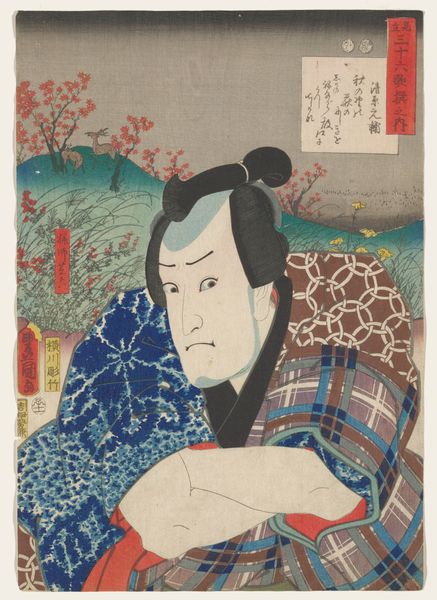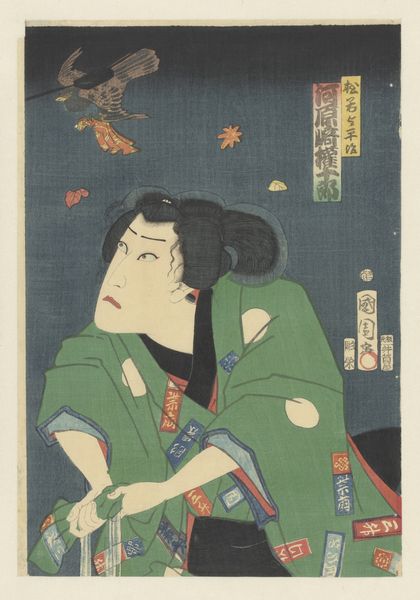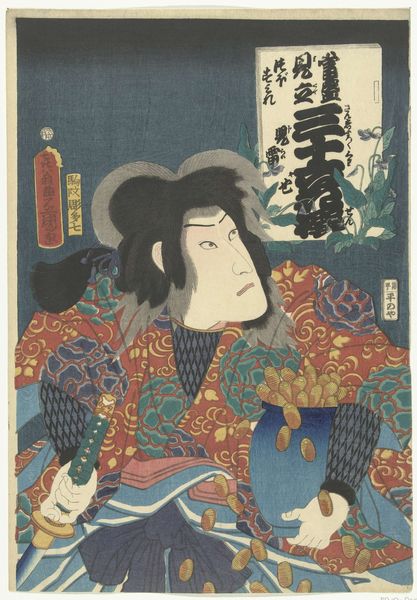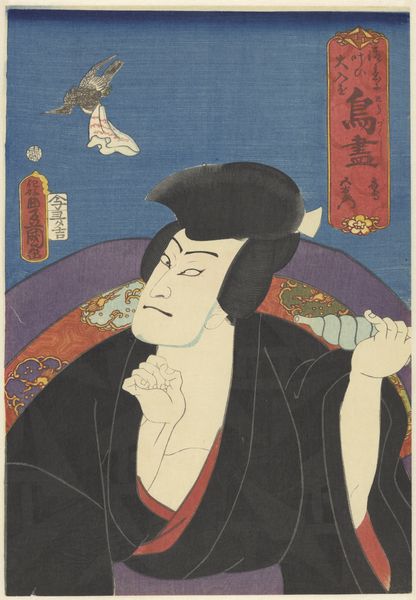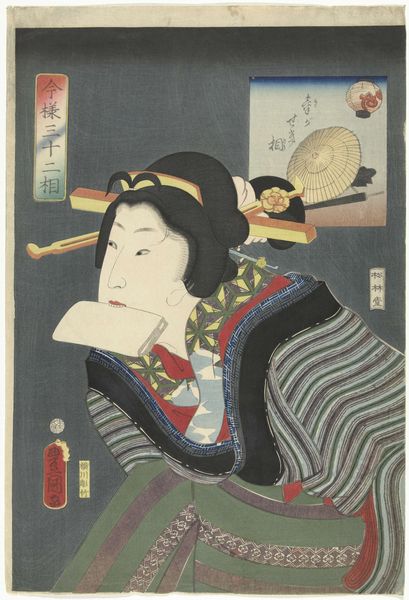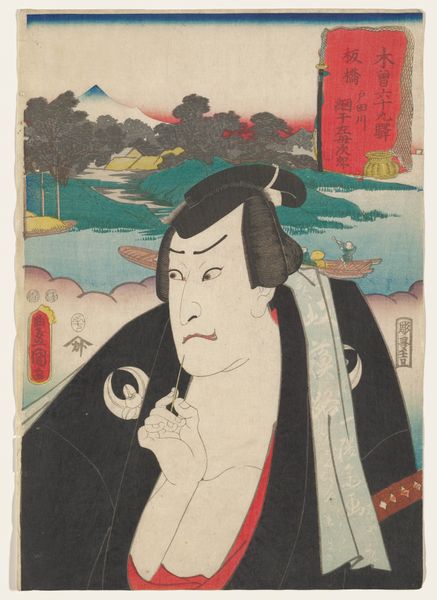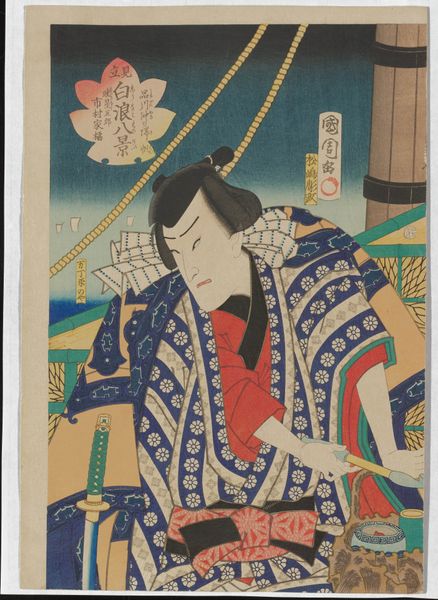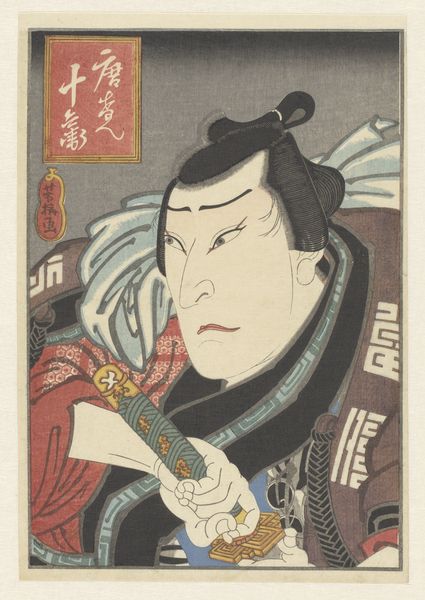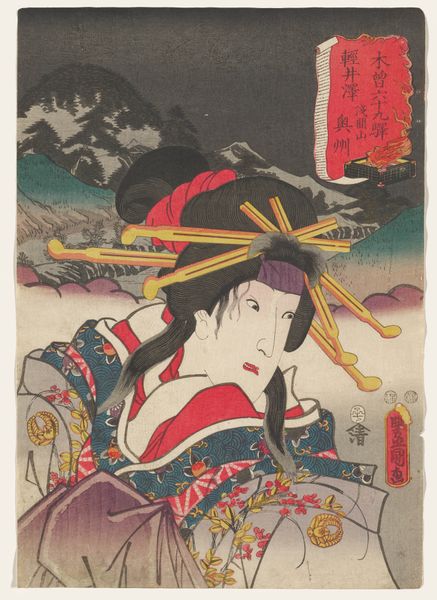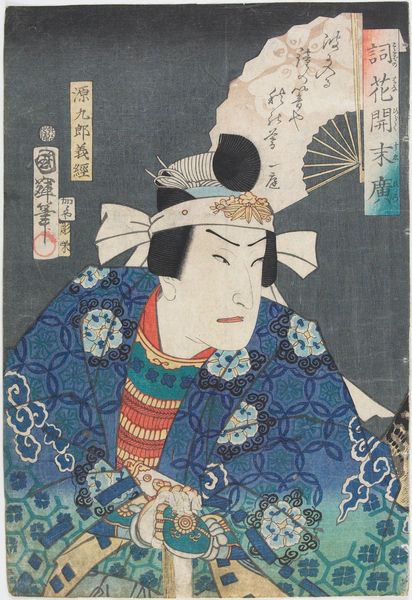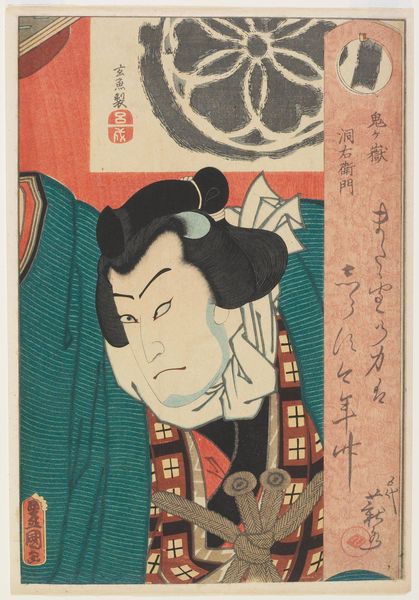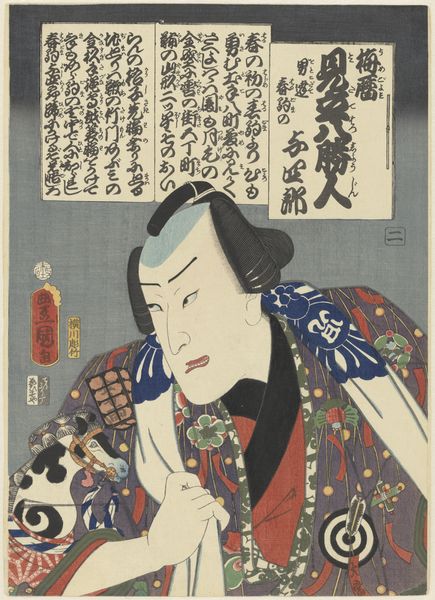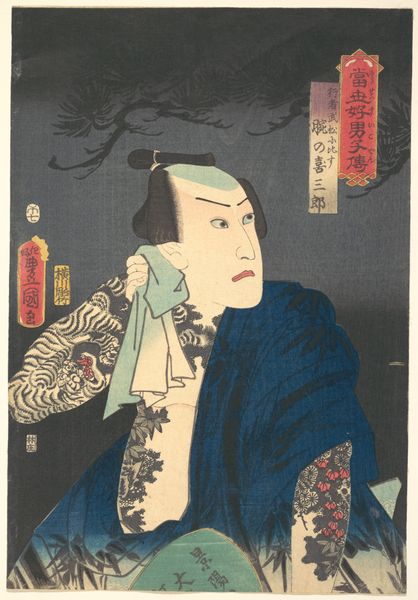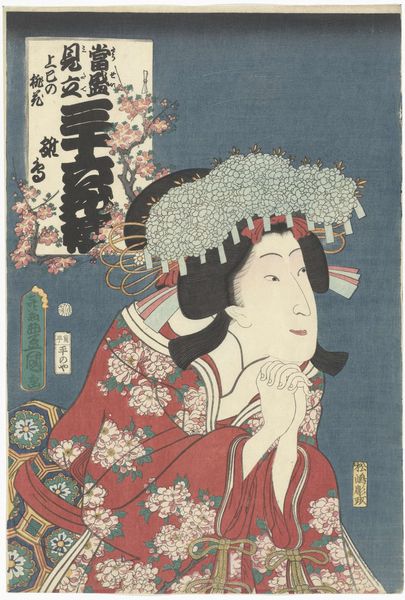
Poem by Chūnagon Asatada- (Actor Bandō Shūka I as) Urazato Possibly 1852 - 1859
0:00
0:00
print, ink, woodblock-print
#
portrait
# print
#
asian-art
#
ukiyo-e
#
ink
#
woodblock-print
Dimensions: 14 × 9 3/4 in. (35.56 × 24.7 cm) (image, sheet, vertical ōban)
Copyright: Public Domain
This woodblock print by Utagawa Kunisada depicts actor Bando Shuka I as Urazato against a snowy backdrop. The snowflakes aren't merely atmospheric; they symbolize purity and transformation, concepts deeply rooted in Shinto and Buddhist beliefs. Consider the motif of snow as it drifts through time. We see it, for example, in Northern Renaissance paintings, where snow-covered landscapes often represent spiritual trials and penance. Here, in Kunisada's print, snow serves a dual purpose: it provides a setting for the actor, but it may also invite reflection, calling forth the viewer's memory of the season's stillness. The stark whiteness against the dark sky evokes a sense of isolation, a feeling amplified by the actor's contemplative pose. This melancholic pose, hand to the chin, reminds us of depictions of philosophers and thinkers across cultures. The gesture conveys a weighty psychological depth. Here, it is the weight of the poem itself, and all it represents of human emotion and experience. The symbol resurfaces, carrying with it echoes of past meanings and emotions, ever-changing.
Comments
No comments
Be the first to comment and join the conversation on the ultimate creative platform.
